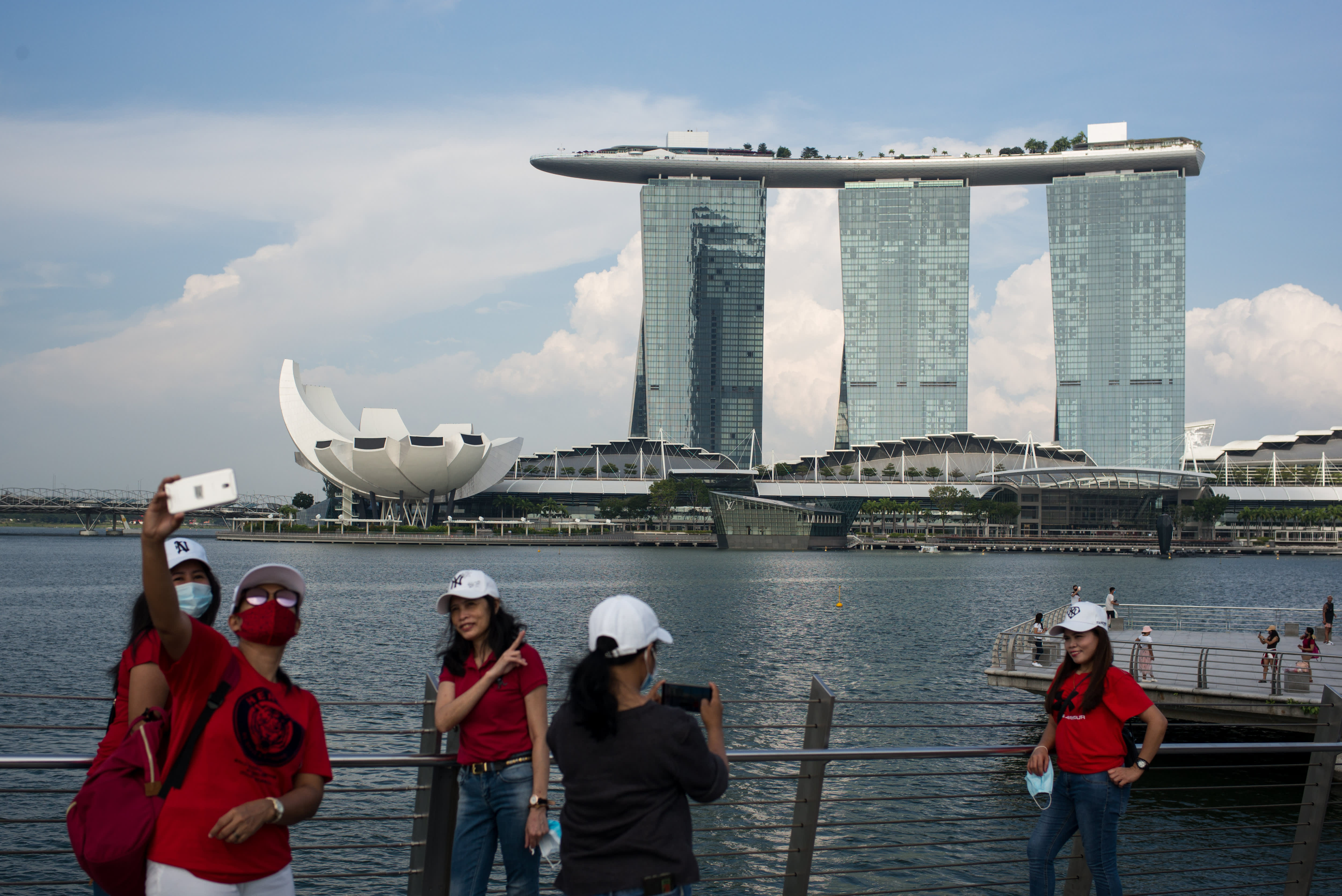Singapore is committed to containing coronavirus pandemic even as daily cases fall, politician says

People wearing face masks as a preventive measure are seen at the Merlion park, one of the major tourist attraction in Singapore and near the Marina Bay Sands during the Singapore National Day on 9 August 2020 amid the Covid-19 pandemic.
Maverick Asio | SOPA Images | LightRocket | Getty Images
SINGAPORE — The city-state of Singapore is committed to its strong measures to effectively contain the spread of the coronavirus, a senior member of the country’s government said on Wednesday.
“We don’t believe that we can get to no Covid cases, but we want to have a situation where we will be able — if any Covid case arises — to be able to contain it,” Senior Minister Teo Chee Hean told CNBC’s Martin Soong at a Credit Suisse event.
Early in the year, Singapore was a poster child for its efficient handling of the spread of the virus. But that success was threatened after an outbreak among foreign migrant workers residing in dormitories, who primarily hail from India and Bangladesh.
“We managed to contain it quite well in the first couple of months, but it almost got away from us in April and May. And in the first week of April, we had numbers in the low double digits…By the third week of May, we were having four-digit numbers over 1,000 a day. And that’s how fast it moves,” said Teo.
In April, Singapore went into a partial lockdown the government called a “circuit breaker.” Gradual easing of the restrictions started in May.
As of now, the situation has largely been brought under control. On Wednesday, there were just seven new cases tied to dormitories, according to Singapore’s Ministry of Health.
“For the dormitories, it took us quite a while to bring it under control, because we wanted to do several things. We wanted to make sure that we looked after the workers well — they are here, they work, they are here to make an honest living and it is our responsibility to look after them — so we made sure we look after their pay, we look after their food, we look after their health, and this shows in the extremely low fatality rates. And it is not serendipity, it was something which we set out to do deliberately,” said Teo.
All of the migrant workers have been tested and have returned to work. They must still undergo routine testing.
“Everyone — whether he’s a migrant worker, if he’s Singaporean — if he mixes together in that worksite milieu, he has to be tested once every 14 days. And that’s where we are getting some of these cases now, because we’re sort of running everyone through a filtration system again, to make sure that we clean it all out,” said Teo.
Due to the infectious nature of the virus, the country’s strong preventive and containment measures are necessary to prevent superspreader events, which “once it gets out of control, is very difficult to bring it back under control,” said Teo.
“It involves early detection, containment, isolation, and making sure that we can keep control of the situation,” he said.
“So it’s not a question of, if we go back to where we were before. If we go back to where we were before, without safety measures, we’ll be in trouble again, because the virus is going to behave in exactly the same way … it is a very, very fast moving virus, it will find all the nooks and crannies and all the crevices and come through and surprise you in a way which you had not thought of before,” he said.



